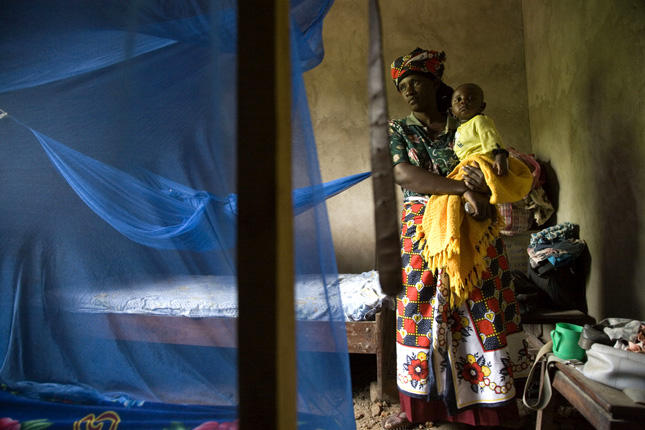-
Jeffrey Gettleman, The New York Times
Mosquito Nets Used for Fishing Raise Sustainability, Health Questions
January 28, 2015 By Wilson Center Staff
BANGWEULU WETLANDS, Zambia – Out here on the endless swamps, a harsh truth has been passed down from generation to generation: There is no fear but the fear of hunger.
With that always weighing on his mind, Mwewa Ndefi gets up at dawn, just as the first orange rays of sun are beginning to spear through the papyrus reeds, and starts to unclump a mosquito net.
Nets like his are widely considered a magic bullet against malaria – one of the cheapest and most effective ways to stop a disease that kills at least half a million Africans each year. But Mr. Ndefi and countless others are not using their mosquito nets as global health experts have intended.
Nobody in his hut, including his seven children, sleeps under a net at night. Instead, Mr. Ndefi has taken his family’s supply of anti-malaria nets and sewn them together into a gigantic sieve that he uses to drag the bottom of the swamp ponds, sweeping up all sorts of life: baby catfish, banded tilapia, tiny mouthbrooders, orange fish eggs, water bugs and the occasional green frog.
Continue reading on The New York Times.
Sources: Cichlid-Forum, U.S. Centers for Disease Control, U.S. Geological Survey.
Photo Credit: Anit-malarial nets in Tanzania, courtesy of the Gates Foundation.
 A Publication of the Stimson Center.
A Publication of the Stimson Center.






